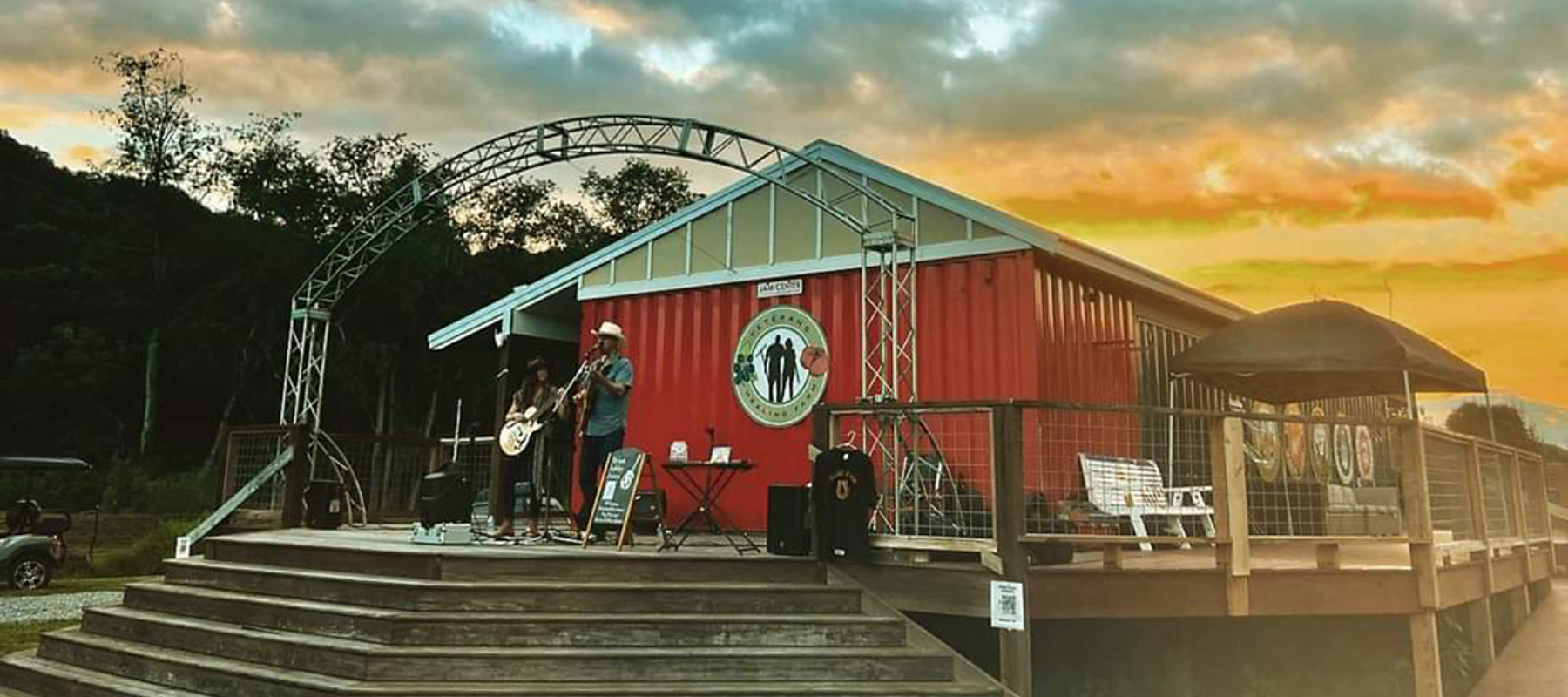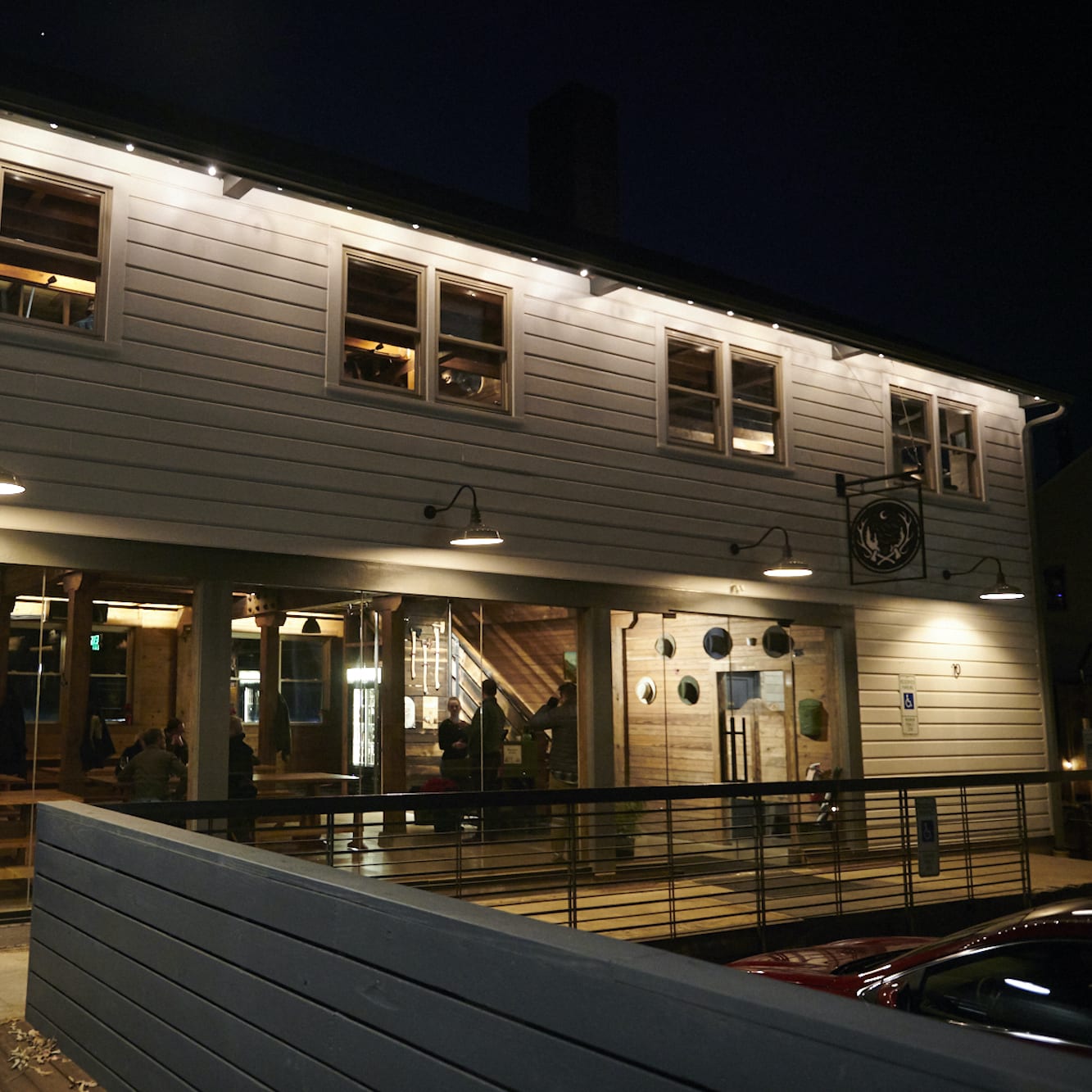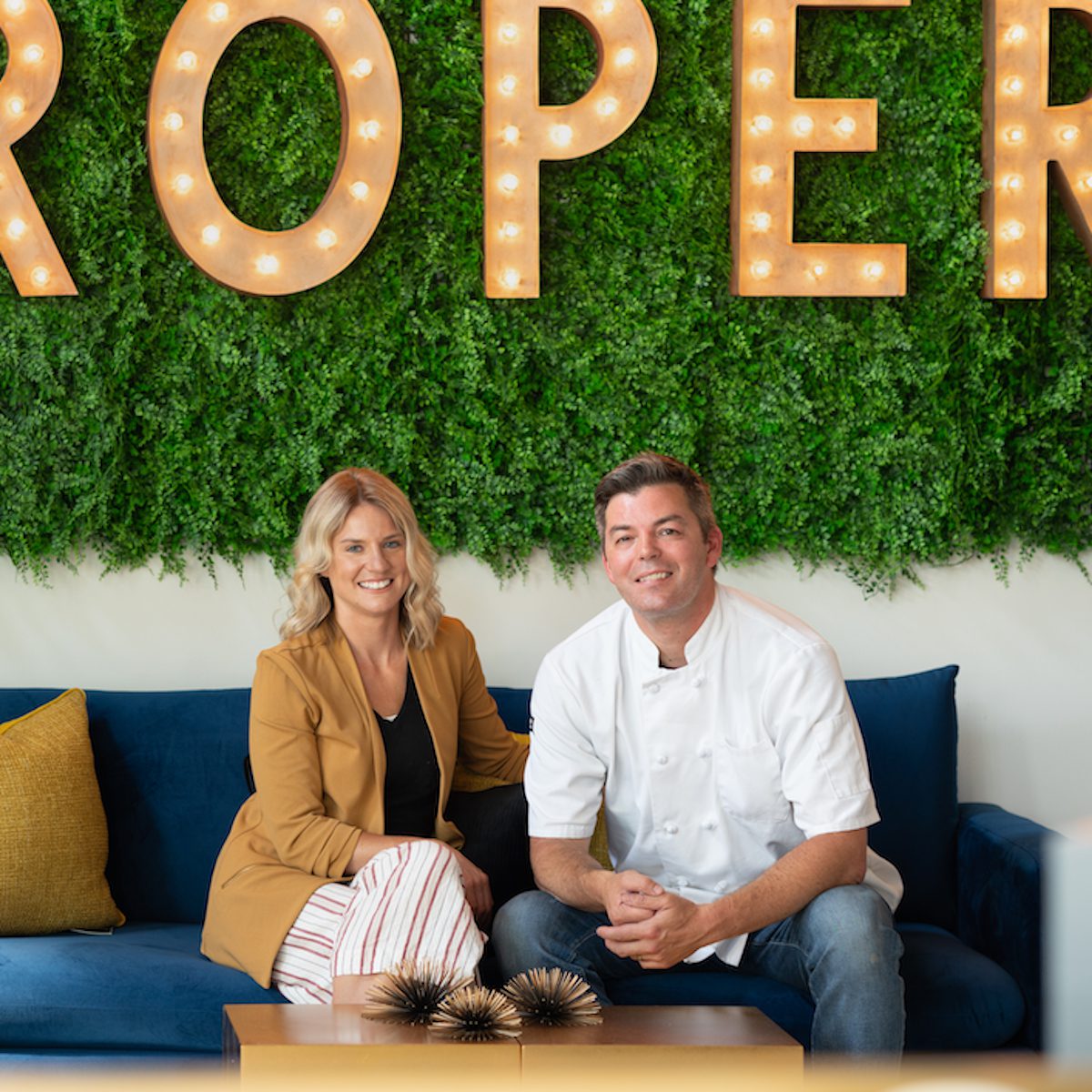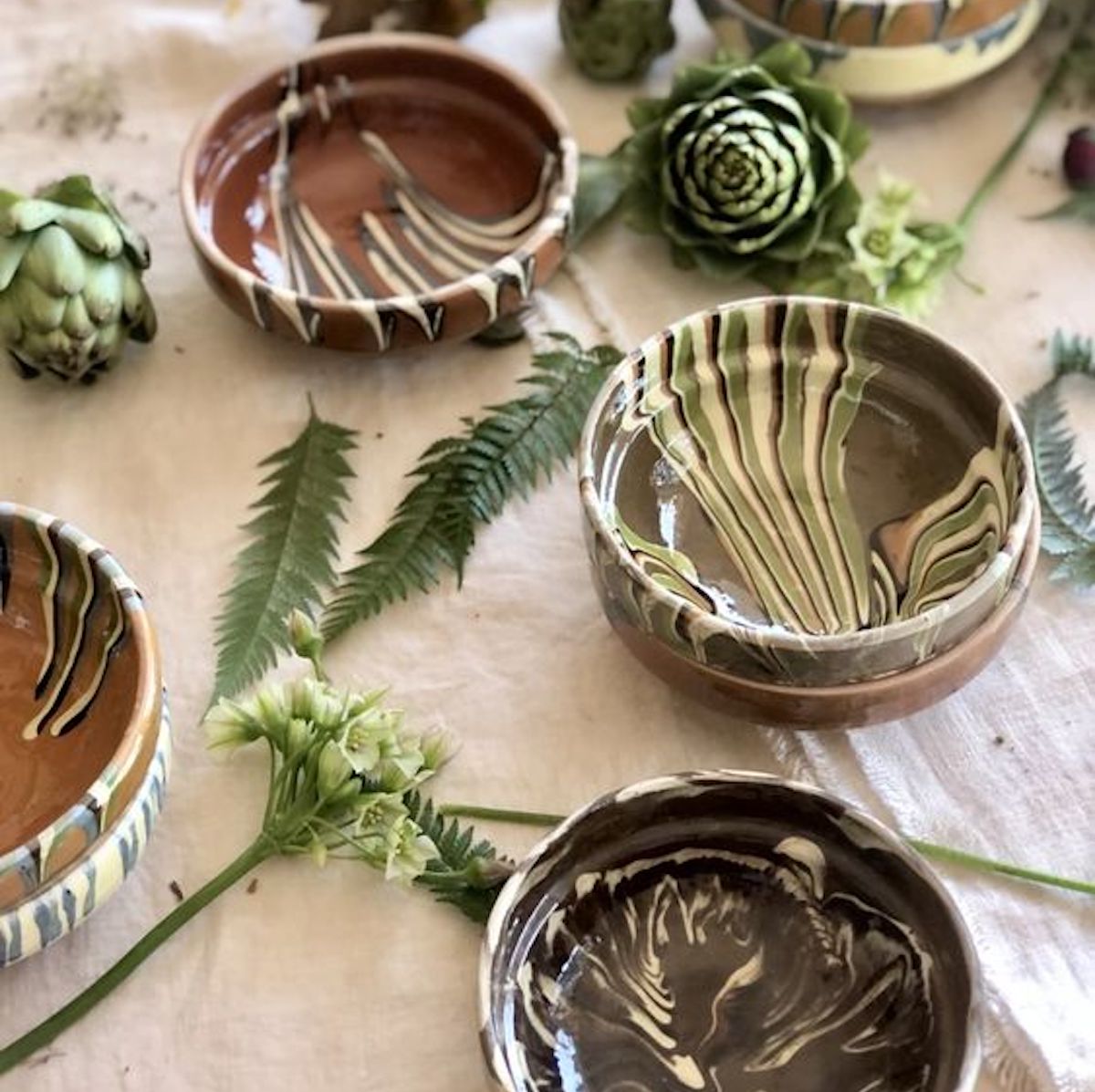Protecting and serving others while finding community at Veterans Healing Farm
Just a 10-minute drive from the artsy mountain town of Hendersonville, North Carolina, a small farm is working to end veteran suicide, one planting and one harvest at a time. The 8-acre property is home to various gardens and greenhouses, pastures with sheep, an apiary, and an aluminum red, white, and blue building and pavilion; it’s operated by three full-time employees and a small army (pun intended) of volunteers, both veterans as well as family members, spouses, friends, and caregivers. As executive director Alan Yeck puts it, “No one serves alone. We don’t ask people where they served. If they’re here, they have a connection, and we don’t ask them to talk about it, but if they want to, they have a group of people who have similar experiences.”
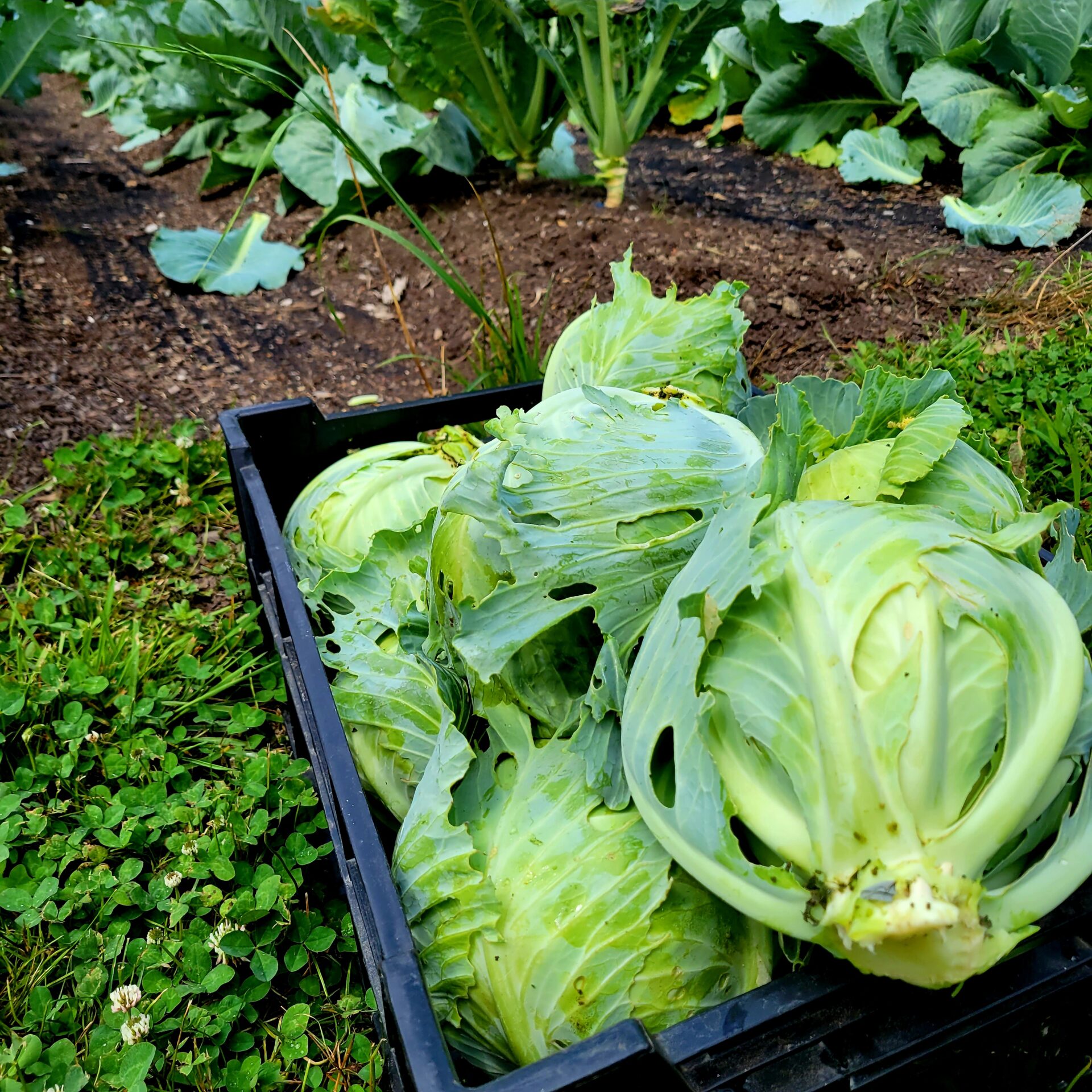
Veterans Healing Farm began in 2013 as a place for veterans to help other veterans by growing fresh, nutritious produce on a quiet farmland setting. In an effort to combat food insecurity experienced by many veterans (particularly those in aging and marginalized communities), everything produced—from seasonal vegetables to firewood to fresh cut flowers—gets distributed to veterans and people in need throughout Asheville and the surrounding area. Yeck explains that many people with a military background are among those least likely to ask for help, a byproduct of working in an environment where self-sacrifice and self-sufficiency equal hero status. Couple that with a general lack of societal support for veterans returning to civilian life, and the results show that many people don’t receive the help they need—or even know what resources are available to them.
Veterans Healing Farm’s impact is two-fold: Volunteers grow and donate food as a way of thanking other veterans for their service, and they simultaneously connect with others like them in a setting where agriculture work has therapeutic effects.
“Veteran suicide isn’t something that’s going away on its own, so those organizations that step in are critical,” Yeck says. “The people who don’t go to the VA [Asheville VA Medical Center] will come here.” Volunteers help with the vegetable gardens, flower gardens, beekeeping, and medicinal herb garden, as well as with administrative tasks like community outreach and organizing events. Yeck explains that people travel from across the Carolinas and as far as Tennessee and Florida just to volunteer. For faraway travelers, the main building on the property includes bunk rooms (one for men, one for women) outfitted with quilts knitted by local church groups.
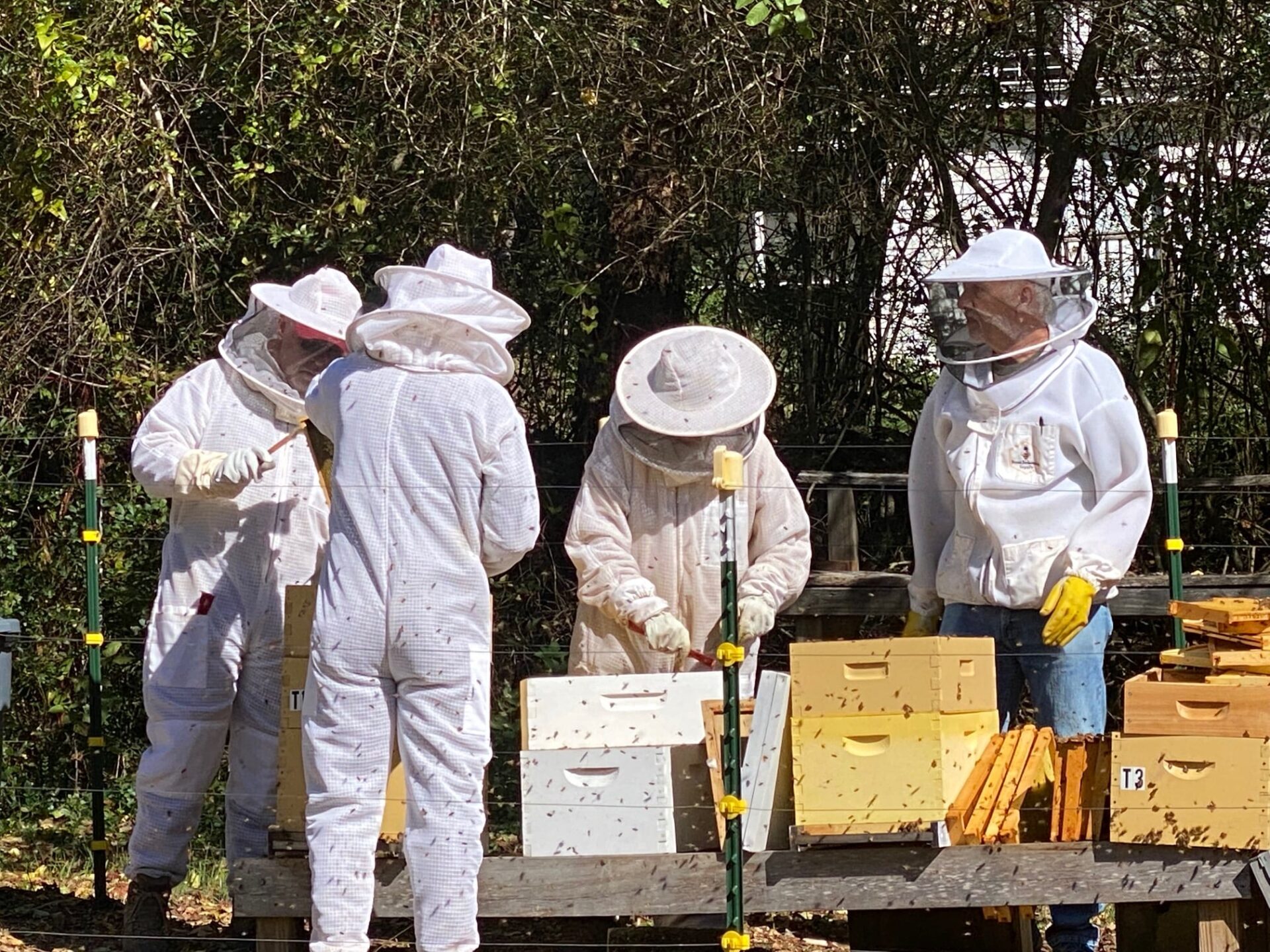
The volunteers are a mix of first-timers and returning folks. Yeck has seen people come out and work in the gardens and share their stories, while others come just to sit quietly and watch the river or stand in the sunflower labyrinth. He wants everyone to feel welcome. He and the other employees take all food grown, as well as honey from the bees, firewood, and fresh-cut flowers, to the local VA Hospital and hand it all out from a farmstand outside the entrance. Any leftover produce goes to Veterans Restoration Quarters in Asheville, Interfaith Assistance Ministry food pantry, and local churches harboring migrant refugees, or it can be taken home by any volunteer, no questions asked.
Yeck himself began as a one-off volunteer but says, “The peace here brought me back. I didn’t know I needed it until I had it.” At one point while walking around the property, he pauses at a large rock. He sits and watches the small creek that divides the farm. “Listen,” he says. Birds
sing, the trees’ leaves rustle on the breeze, bumblebees hum around, and a faint train whistle blows in the background—that’s it. He smiles and says, “Exactly.”
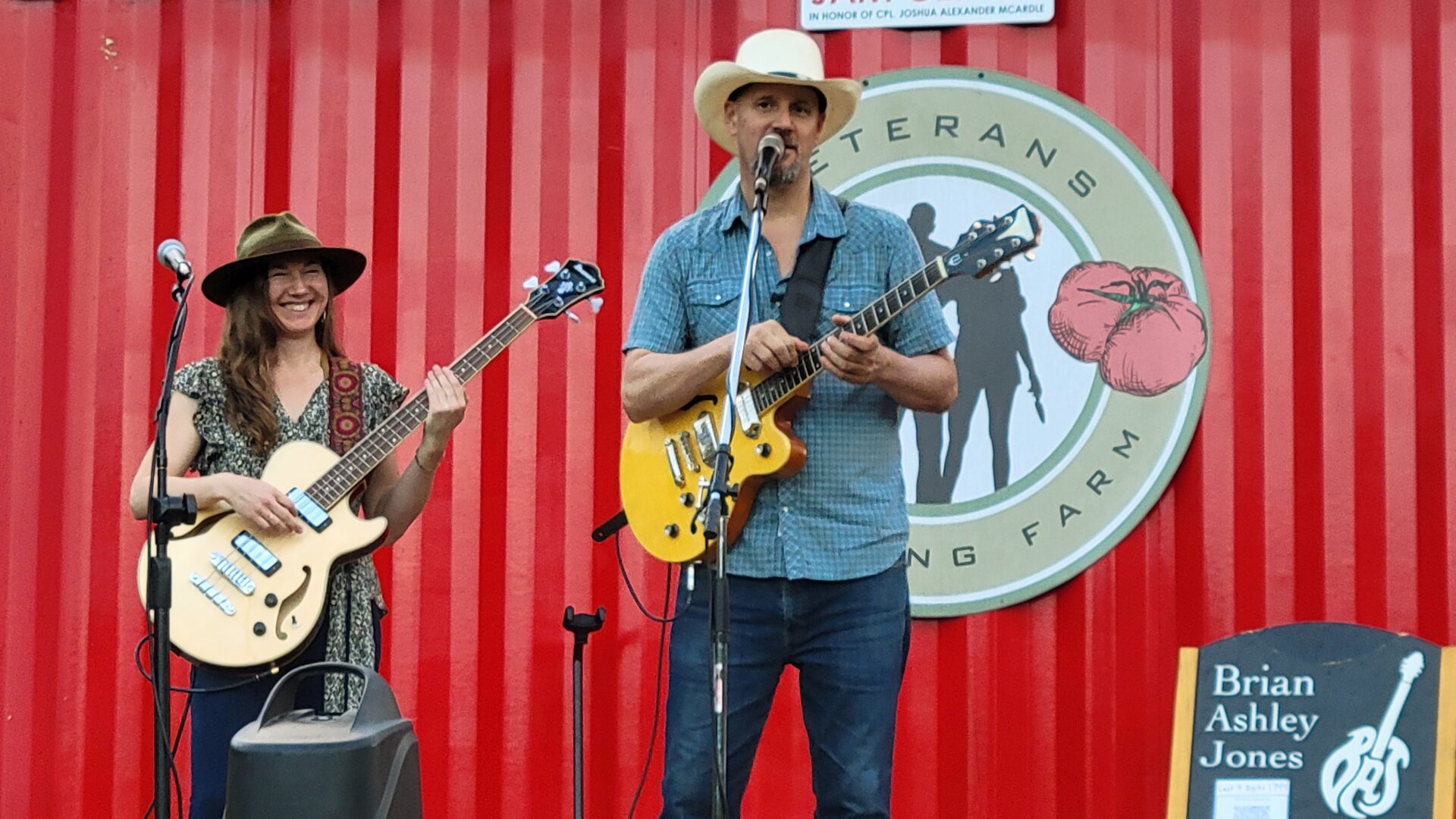
Veterans Healing Farm acts as a site for veteran resources beyond just the farm’s activities. It hosts weekly sessions for music therapy, equine therapy, dream therapy, and canine therapy, as well as low-energy neurofeedback, available by appointment. The farm hosts regular workshops that evolve around homesteading themes, such as canning, making medicinal tinctures or salves, or growing heirloom tomatoes. At the end of each workshop, volunteers leave with at least four creations to take home. “We’re connecting vets to healthy habits,” Yeck says. In the medicinal herb garden, there’s elderberry, holy basil, echinacea, and more, which the on-site director of plant medicine turns into tinctures and aromatics to help promote immune health and sleep, and ease anxiety.
As the farm’s offerings grow, so does its programming. It hosts regular bonfire nights, live story slams, and an annual Veterans Resource Fair (think a career fair but for organizations and nonprofits that offer support to veterans and their families). Coming up in November, Veterans Healing Farm will host the Traveling Vietnam Memorial over Veterans Day Weekend.
By charting new avenues for support, Veteran’s Healing Farm promotes healing and community in an inclusive environment that offers assistance without requiring people to ask for it. As Yeck puts it, “The trauma was not done in isolation, and the healing will not happen in isolation. There is not one path, one pill, one therapy that helps all who continue to suffer. The pain is unique to each individual and their healing is, too.”
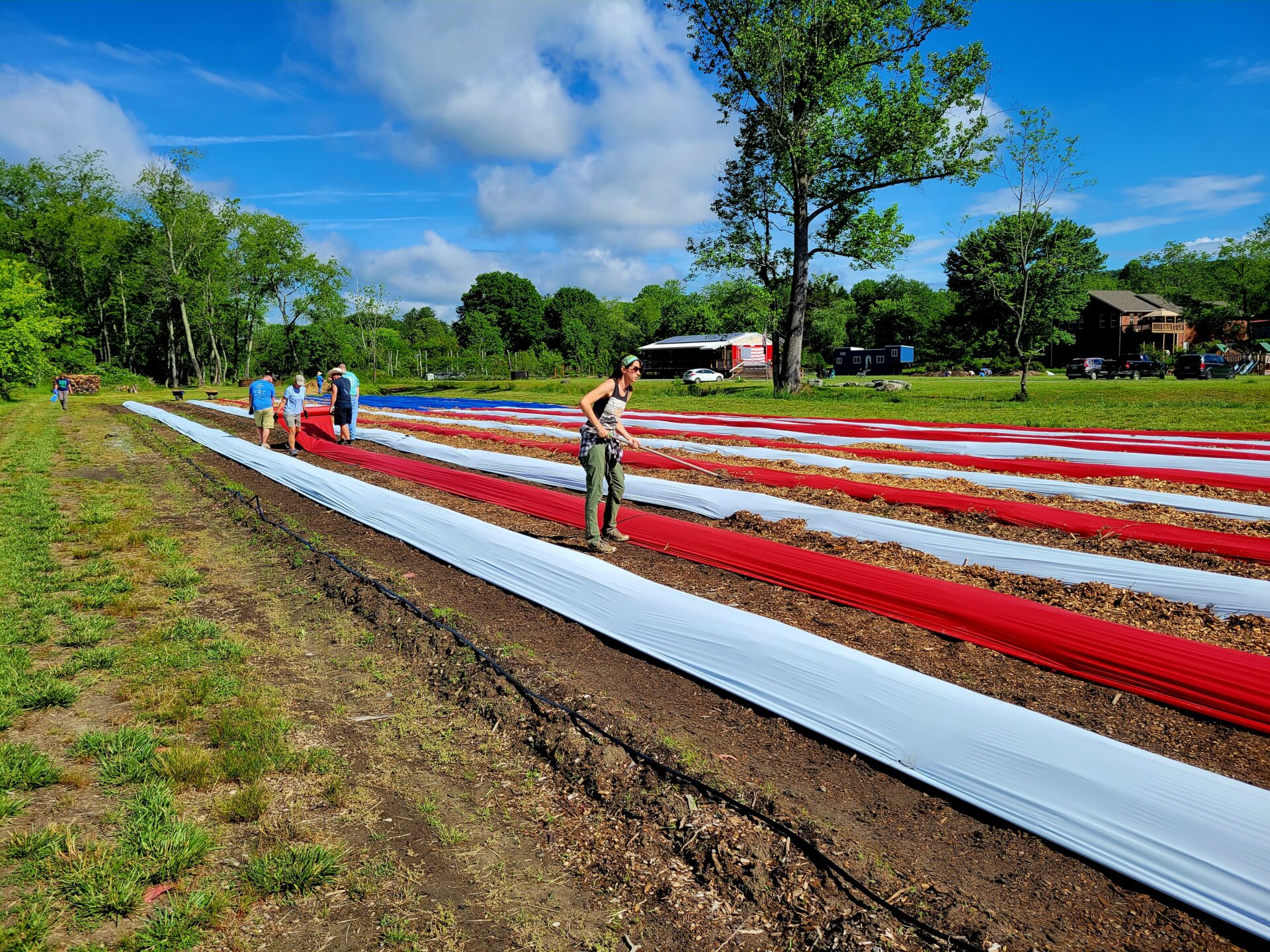
For more information on the farm’s programming and volunteer signup information, visit veteranshealingfarm.org
keep reading
In the Field
A Forestry Camp Grows in Asheville
In a historic woodland setting in the shadow of the Blue Ridge Mountains, Burial Beer Company’s sprawling new digs tell the story of the community who helped to shape it, past and present.
On the Road
An Insider’s Guide to Asheville
Off-the-beaten-path coffee shops, taquerias, BBQ joints, and more, from an Asheville local.
At the Table
A Fresh Take on the Harvest Table
Elevate your autumnal tablescape for holiday gatherings with a few new-of-the-season pieces that embrace all the warmth of the harvest season with a cool twist.
share
trending content
-
New Restaurants in Arkansas
-
Shrimp and Grits: A History
by Erin Byers Murray -
Tea Cakes, A Brief History
by TLP Editors -
Gullah Geechee Home Cooking
by Erin Byers Murray -
A Cajun Christmas Menu
by TLP Editors
More From In the Field
-
Meet Jess Pomerantz of Columbia, South Carolina | Video
-
Meet Chef Jessica Shillato | Video
-
Meet Columbia SC’s Main Street
-
Craft Beer in Columbia
-
Columbia, SC: A Southern Hot Spot





